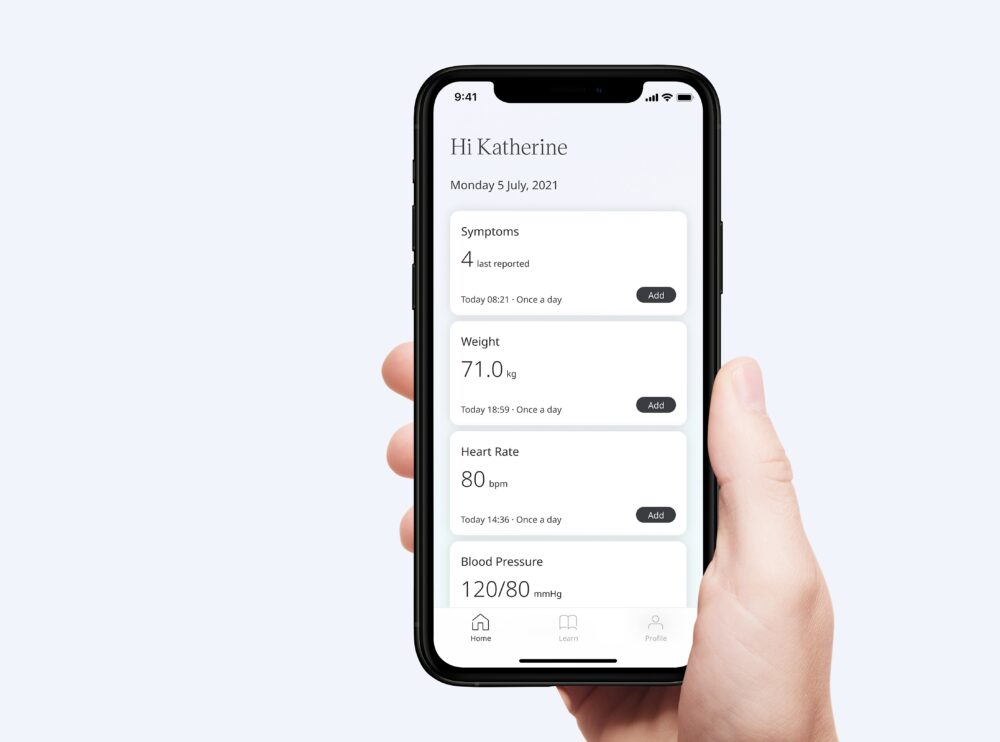Heart patients monitored at home via mobile phone as part of health pilot

CARDIAC patients in North Wales are trialling innovative new technology that allows clinicians to monitor their health and recovery via mobile phone.
Betsi Cadwaladr University Health Board has teamed-up with healthtech company Huma to assess whether people with heart problems can be supported in their homes using an app that reports on their condition.
The pilot programme has been funded by Welsh Government, and Huma’s revolutionary application means any changes in the patient’s health or response to medication could be identified sooner.
The technology allows people to record their symptoms and vital signs, such as weight and blood pressure, which will be reviewed by the clinician and fed-back to the patient to record progress and any concerns.
The technology also allows patients to have consultations by video, which can help avoid unnecessary visits to clinics or hospitals.
The Welsh Government’s Help Us, Help You campaign is encouraging people to use a range of different services to alleviate pressure on the NHS; they believe this cutting-edge solution is one way of doing that, particularly in lowering waiting times.
Viki Jenkins, Heart Failure Advanced Nurse Practitioner for BCUHB, said “We want to build on the advances made in digital technology since the beginning of the pandemic, and this is an extension of that, but we need to understand how easy or difficult it is for people to use the application, which is what this pilot is all about.
“This is a great opportunity to explore what health services are going to look like in the future – COVID-19 has shown us we have to embrace innovation like this.”
As part of the trial, patients will receive equipment to take readings, including a blood pressure cuff, weighing scales and a pulse oximeter.
Cardiology specialists will be able to remotely monitor each patient’s symptoms, progress and conduct video consultations to address any concerns. If needed, hospital visits can be arranged for further treatment and consultation.
As trends continue to change nationally due to the impact of the COVID-19 pandemic, Helen Northmore, Head of Digital and AI (Artificial Intelligence) at Life Sciences Hub Wales, said the Huma app is an example of how technology will play an even bigger role in patient care going forward.
“The traditional pathway is for cardiac patients to regularly attend a hospital appointment and have these readings taken,” she said.
“This application will free up clinicians’ time so they can be there for patients who need them more urgently, and it also saves the patient from having to travel and wait at the hospital to be seen.”
The pilot is one of five projects to be awarded funding as part of the £150,000 Digital Solutions Fund, looking at new and revolutionary ways to use technology in the fight against Coronavirus and beyond.
Dr Jonathan Gledhill, Head of Healthcare at Huma, said: “We are pleased we can make it easier for patients to get the care they need and spot any deterioration in their health, whilst saving significant time for clinicians so they can focus care where it is most needed.
“Our technology already helps patients on surgery waiting lists, people with acute illness like COVID-19 and chronic diseases such as diabetes.
“Our published research shows we can make a big difference and it’s exciting to test yet another way that we might be able to help patients.”
For more information, visit www.huma.com.
Visit www.bcuhb.nhs.wales for the latest news and information from Betsi Cadwaladr University Health Board.
Please use the hashtags #HelpuNiHelpuChi and #HelpUsHelpYou to support the Help Us, Help You campaign.





